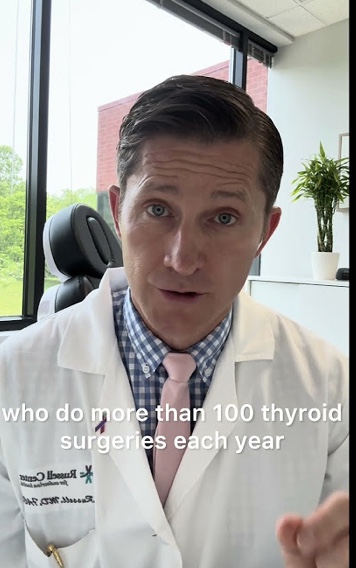
August 15, 2025

Thyroid cancer is one of the most common cancers in America, and it is especially common among women. If you are a woman with Hashimoto's thyroiditis, another very common condition, thyroid cancer is even more common. Although it is very common, the prognosis is very good. The prognosis is good because most people who learn that they have thyroid cancer find out about this cancer very early in the treatment process. Earlier identification means earlier treatment which means a better outcome. Because most people learn about their thyroid cancer in the first stage, it is important to understand what is the first stage of thyroid cancer.
First, let's disambiguate. Thyroid cancer, and most cancers, is staged on a 1-4 system. First stage thyroid cancer has a better prognosis than second stage thyroid cancer which has a better prognosis than third stage thyroid cancer and so on. So to understand what is the first stage of thyroid cancer, you need to understand that it's the earliest stage and therefore the best prognosis of any thyroid cancer stage. (It's important to clarify that we are talking about stages of cancer, not "what are the first symptoms of thyroid cancer," which we have addressed previously).
Next, it's important to understand that not all thyroid cancers are equal: Papillary Thyroid Cancer (PTC) is the most common. The prognosis is excellent, and that is the type we will discuss below. Follicular, Medullary, Oncocytic Cell/Hurthle Cell, Poorly Differentiated, Diffuse Sclerosing, Anaplastic, etc all are different, and the staging will be more variable.
Then, you should know that age matters with all stages of thyroid cancer: younger patients have a better prognosis and are less likely to die from thyroid cancer. For that reason, any patient who is younger than 55 years old and has thyroid cancer can ONLY have stage 1 or stage 2 cancer. The prognosis is very good even if the cancer has already spread extensively. (That doesn't mean it's a good cancer- it just means that your prognosis is better than it would be with most other cancers).
Finally, you should know that most thyroid cancer is treated surgically. There are some cool things and options that can be considered (thermal ablation, active surveillance, and scarless surgery just to name a few), but for most people surgery is the gold standard and the best way to ensure that you have the best prognosis.
So what are the 4 stages of thyroid cancer?
Stage 1 thyroid cancer is the earliest form. It has not yet started to spread, or the spread is only to the lymph nodes close to the thyroid.
Stage 2 thyroid cancer is more advanced. For patients who are younger than age 55, this includes anyone with cancer that has spread anywhere else in the body outside of the neck.
Stage 3 only applies to patients older than 55, and this includes any thyroid cancer that has started to invade the important parts of the neck such as the voice, nerve, windpipe or voice box.
Stage 4 cancer is the most advanced, usually because it is starting to become so large or invasive that surgical treatment is challenging or less successful. In stage 4a, surgery becomes very risky and in stage 4b, the risks of surgery have to be carefully managed because the cancer has already spread to other sites that can't easily receive surgery (such as the lungs). For stage 4 cancers, we often consider treatment with some targeted therapies before surgery. Targeted therapies are a type of drug or molecule that is less invasive than traditional chemotherapy, but still quite involved.
Now getting back to the original question: what is the first stage of thyroid cancer? The first stage of thyroid cancer includes the earliest thyroid cancers. Often, these cancers haven't caused any symptoms. They are small. You might find out about them incidentally on a scan that you get for another reason. They have the most treatment options, sometimes including only watching them over time.
Because these first stage thyroid cancers have so many treatment options, your goals should be to focus on the treatment that will least affect your quality of life. As a surgeon, I know that my primary objective is to "first do no harm" with a patient with stage one thyroid cancer. While some surgeons might talk about their very low recurrence rate, my strategy is to focus on avoiding complications at all costs. The vast majority of patients will only need one round of treatment, and so we want that treatment to be as low impact as possible. Interestingly, patients with stage one thyroid cancer may have the most to gain by seeing a high volume thyroid surgeon, because they will want to consider all of the options.
Now that you know what the first stage of thyroid cancer is, you can learn how to get the right treatment! Good luck and let me know if I can help!
